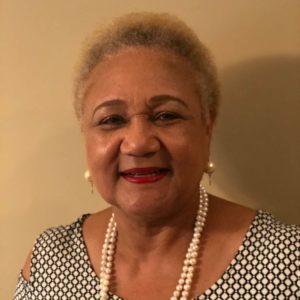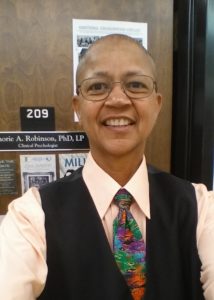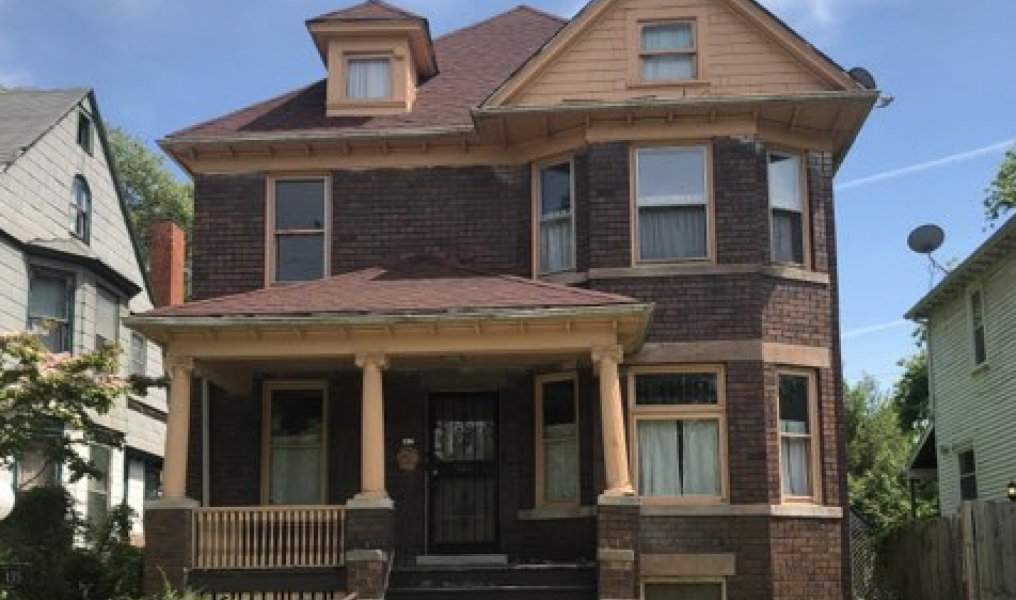Walking through any LGBTQ-friendly metropolitan area in the U.S. it's not hard to find a variety of gay bars. However, if one changes their destination to a lesbian-specific bar, the likelihood of seeking one out goes down drastically. So much so, that a 2017 Market Watch article cited New York, a city of roughly 8.5 million people, as having only one. The starkness of those odds was not lost on the Ruth Ellis Center's Director of Programs Pamela Alexander who said she's observed this exact trend in Detroit. And she said it extends beyond the bar scene, she's been feeling a lack of lesbian-inclusive spaces for roughly a decade now.
"At one time in our history in the gay community lesbians did have their places to go, whether it was through social networking, private organizations and so forth. And with Affirmations up the street, there were a lot of groups related to the lesbian community; socializing in bars and stuff like that was pretty much the norm," she said. "But over the last decade, that has dramatically changed. And so, there are less spaces available for lesbians and, of course, queer women and girls to gather."
To fight that loss, Alexander has been leading the charge over the past year for REC to expand its existing LGBTQ services to a branch dedicated to helping lesbian- and queer-identified women find a safe space to call their own. And as of June, REC officially approved a strategic plan for an expanded space, scheduled its soft opening for fall 2019 and its full debut for 2020. Alexander filled BTL in about REC's expansion of services and why a space like this is necessary in Detroit.

Pamela Alexander
Kofi House
Though its programs and services are still in development, two things that are certain are the building's location and its name. Just two miles from the existing Ruth Ellis Center, REC's expanded offerings will be in a house donated by Detroit LGBTQ activist John Kavanaugh and it will be called the Kofi House, bearing the name of Dr. Kofi Adoma. Known by some as Amorie Robinson, Adoma is a Detroit native, a licensed clinical psychologist, a founding member of REC and a staunch activist for Detroit's LGBTQ community.
"Mr. Kavanaugh, who donated the house to our agency, wanted the house named after her. And so, what I feel will be a nice complement to that is to have this women's program to be located there," Alexander said. "And what we are looking to do in general is to make sure that young people have access to behavioral health and medical health services. In general, education will be a component, leadership development will be a component and certainly navigating around relationships."
Additionally, the center will have services centered around arts and entertainment, entrepreneurship and life skill building. Alexander made sure to emphasize, too, that the Kofi House will provide family services to young lesbian and queer moms without support — something that REC currently does not offer.
"We don't do that here, period. So, where would a group of lesbian moms connect? And because we also have the family group decision-making program here, this will allow for our young moms who are having some challenges around parenting and so forth to connect with our family group decision-making program," Alexander said. "And I can see what will also be a benefit is having an inter-generational component, meaning having younger queer women and moms have that connection with the older generation … allowing them to learn how to and to be open about sharing their own story. I'm hoping that will be part of it as well."

Dr. Kofi Adoma
The Center's Namesake
Adoma herself is very supportive of the planned center, too. She said that when REC Executive Director Jerry Peterson first told her about the plans for the space and its name she was shocked.
"When Jerry told me the news, my head just started spinning; I was totally blown away. I was almost numb and speechless, I could barely believe that moment was happening," she said. "He told me that the house was donated by John Kavanaugh, and I knew John Kavanaugh. Not personally, but through the community we've interacted before in the past, and he's someone that I look up to as a pioneer in the gay community."
Adoma realized then that she had been to the 135 Hazelwood address before in the mid-'90s when the local black LGBTQ community created an investment club that would meet at Kavanaugh's home.
"There's a part of me that wondered, 'Why did John want to name this after me?'" she said.
So, on his birthday, Adoma paid Kavanaugh a visit.
"He applauded me for being a leader in the community and said that that was something he admired. We agreed that we didn't have to know each other well in order to have a mutual appreciation of each other and both of us, we realized, had so much in common," she said. "I would see him throughout the years, he would see me throughout the years, and he said that he would keep watching me and the things that I did and he had a lot of respect for my contributions to the founding of the Ruth Ellis Center."
Adoma said that Kavanaugh also told her that Ruth Ellis herself would have been glad of the activism she has done, which also contributed to the Kofi House bearing her name. Adoma added that she's glad that REC is expanding its services in a way that would stay true to Ellis.
"That just really touched my heart," she said. "I just felt so lifted up and at the same time, I needed to really honor him, too. Because he set a lot of groundwork for the Gay Liberation Movement here in Detroit and that's something that I know he will go down into history for; he's left a legacy."
A Center Unlike Any Other
Adoma's expertise has also allowed her to be a contributor in part of the planning processes for the center. She said that before she learned of the upcoming facility she had never worked with another center quite like this one.
"No, not anywhere. I've been across the country and I know that in Chicago there's a group called Affinity and they have programs that are specific to women … but that's the closest that I've heard to such a program," she said. "It sounds like this is such a unique goal to have. The center has had a history over the past eight years of invisibility of cisgender girls and young women. I mean, every time I went to the center, and I would visit when I could, I would see plenty of my beautiful cisgender boys and young men and my beautiful trans girls and trans women, but rarely did I see cisgender lesbians and bi-attractional girls, or female-bodied pansexual or nonbinary girls for that matter, and I had wondered where they were."
Adoma said that she views the services that will be provided by the center as vital to the development of Detroit's lesbian- and queer-identified youth. In particular, because they don't often have strong positive role models to look up to. Adoma said she hopes the Kofi House will help change that narrative.
"Studies have shown that girls often get the short end of the stick when it comes to receiving positive attention. They tend to get overlooked even in classrooms and they suffer from a disability a lot of times and they face risks just like other youths do, but so many girls, and particularly girls of color, are being caught up in the school-to-prison pipeline," Adoma said. "The idea of a facility that houses programming specifically for girls and women that are often marginalized in the LGBT community is not only unique but essential."
And in order to make sure the Kofi House is a place that has a range of robust social service-oriented programming all the way to fun social events, Alexander said she's sought help from a variety of perspectives via an advisory committee.
"I am bringing together some really talented folks from the community that are either queer or lesbian who will help support this process through a community advisory committee," she said. "[We're] looking at some of the data related to girls and women, certainly some of the challenges around domestic violence and violence against women, period, and looking at some of the health factors related to this population."
That's an important part, too, because Alexander said that even to this day there are few statistics available that paint an accurate picture of what it's like to live life as a modern-day lesbian- or queer-identified woman.
"The fact that there's a limited number of spaces for lesbian and queer women, that factor may not change by creating this," Alexander said. "However, I think what it will do is encourage people to have conversations about data that they don't have around programming, that they don't have and looking at numbers — particularly around black girls. Of those, who end up in the juvenile justice system? And what percentage of them identity [as lesbian or queer]? And if they identify, what supports are in place?"
Alexander said those are the questions the Kofi House will help answer.










